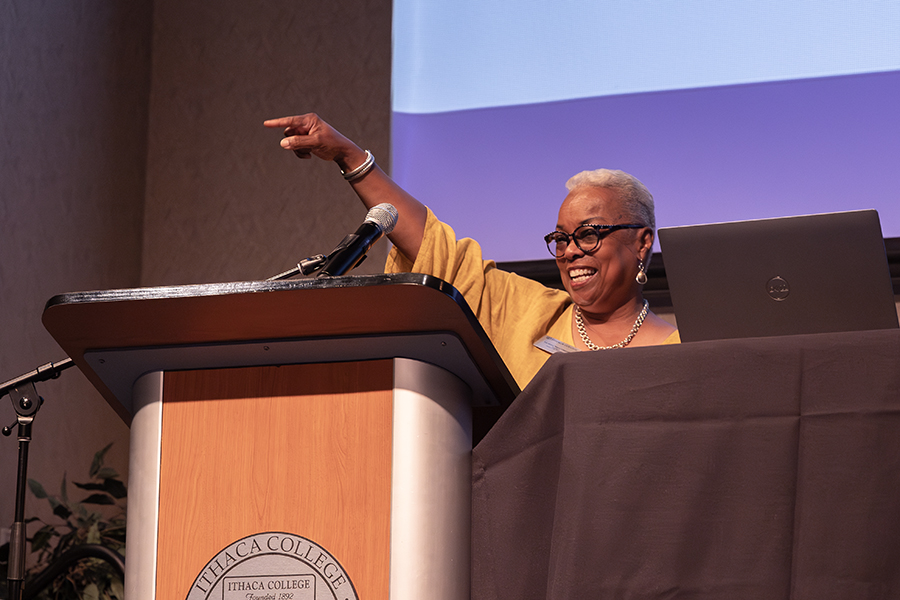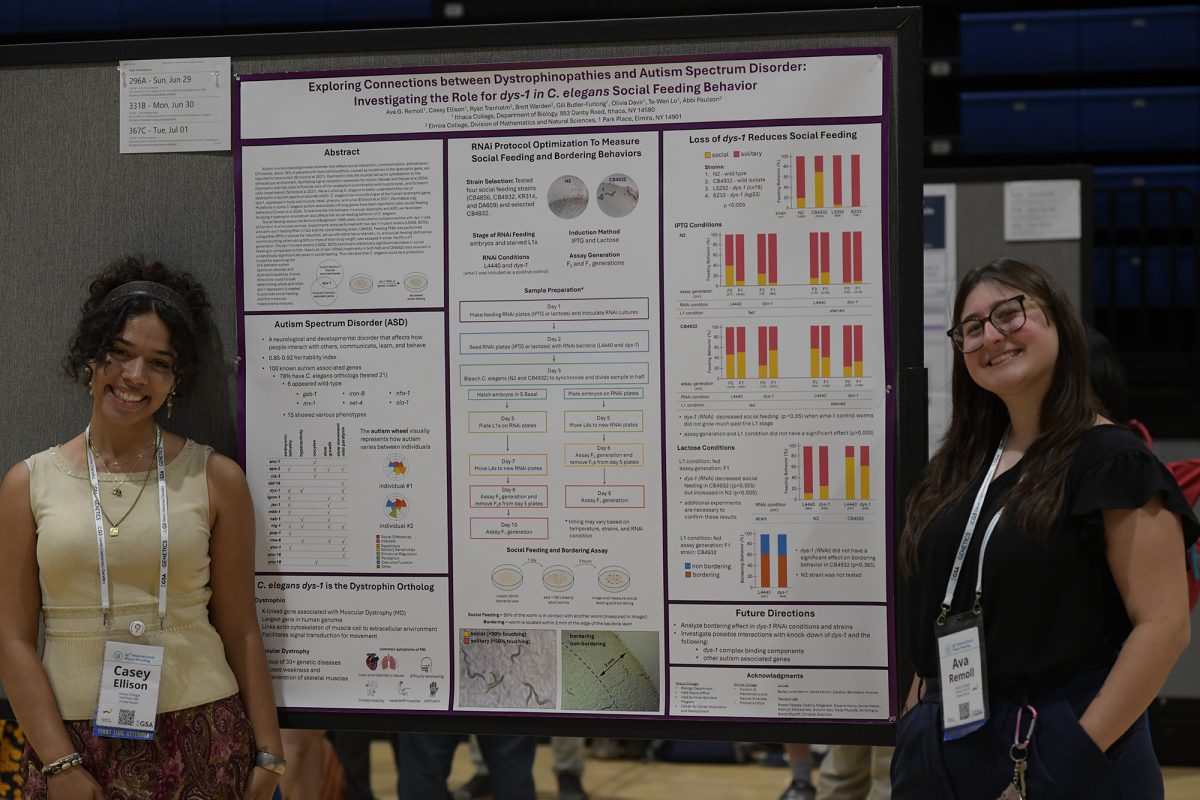Ithaca College students, faculty and staff attended the All-College Welcome Aug. 27 in Emerson Suites to learn about the college’s student affairs, philanthropy, enrollment and finances.
During the gathering, administrators said the college did not meet its enrollment goal for the Class of 2028, so the budget deficit will likely increase. They outlined plans to increase enrollment and decrease costs.
David Gondek, associate professor in the Department of Biology and Faculty Council chair; Marilyn Dispensa, senior instructional designer in the Center for Faculty Excellence and chair of Staff Council; and junior Rishabh Sen, president of the student body, gave updates about their respective councils’ work during the 2023–24 academic year and described their goals for the 2024–25 academic year.
Enrollment and budget
President La Jerne Cornish said the Class of 2028 enrollment is about 200 students below the college’s target. The college hoped to enroll 1,380 to 1,420 new students in Fall 2024, but 1,060 new students and 80 transfer students enrolled, according to slides shown during the presentation.
“This fall, we will be studying our administrative costs, our enrollment targets and our financial aid pricing strategies,” Cornish said. “We will have more to share later in the semester, but at this time, we do not anticipate making any layoffs.”
Cornish said college administrators will share more information during the Oct. 22 State of the College meeting and will present a revised plan and timeline to balance the budget to the Ithaca College Board of Trustees in February.
Rakin “Rock” Hall, vice president for Enrollment Management, said the college has enrolled an average of 1,163 new students over the last five years. Hall said his team is trying to develop architecture to ensure that the college can reach a specific enrollment target each year.
“I’m really trying to create this idea of a baseline model,” Hall said. “Now, the number that we roll out may not be incredibly sexy, it may not be awe-inspiring, but it represents an architecture that we can create and build up to.”
Hall said the college has traditionally purchased names of 200,000 high school juniors and seniors each November for marketing and outreach. The college plans to buy an additional 100,000 names in the 2024–25 cycle starting in September, which will include buying names of high school first-year students and sophomores. Though Hall did not specify how the college purchases students’ names, testing agencies like The College Board collect students’ contact information and sell it to colleges.
“This isn’t more for the sake of more,” Hall said. “The idea is to try to identify a group of students who have a stronger affinity for Ithaca College … and really work on those conversations sooner.”
Hall said the college will create a parent engagement portal for prospective students’ families. He said the college expects that the 2024–25 FAFSA form will be released late for the second year, so the college will promote the use of the Student Aid Index (SAI) calculator to provide financial aid offers for all admitted students who apply before the form’s release.
Tim Downs, chief financial officer and vice president for finance and administration, outlined the college’s financial status and said he will share more thorough information in future meetings.
Downs said the Board of Trustees approved a $9.2 million budget deficit projection in May for fiscal year 2025, which started July 1, but the administration had to revise the deficit projection because new student enrollment was 200 below the target. Downs said the administration will project realistic enrollment, discount rates and retention and adjust budgets across campus.
“What we’re asking for is kind of what we’ve already done,” Downs said. “As a campus, we’ve really kind of held tight to what we needed to do, which is why we’ve been able to overachieve these deficits during this year. [Fiscal year] ’25 is no different.”
Closing
In her closing remarks, Cornish noted that David Weil, vice president and chief information and analytics officer in the Department of Information Technology and Analytics, received Educause’s 2024 Leadership Award for his service to the campus community.
Cornish closed the gathering by acknowledging the college’s institutional goals for the 2024–25 academic year, which are derived from the Middle State self study: student success, integration, sustainable and appropriate size to support future success, and equity, inclusion and belonging.
“There is hard work ahead, but as you have seen and heard before, we do hard things,” Cornish said. “We’ve gone through tough times and we conquer them together. We can do this again. The best is yet to come and we’re going to do it together.”
















